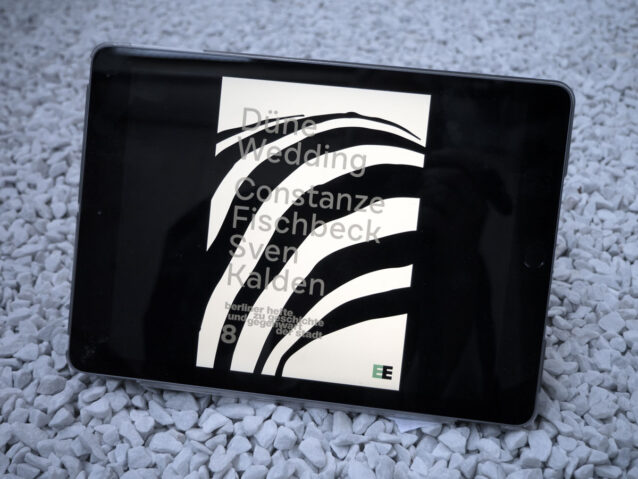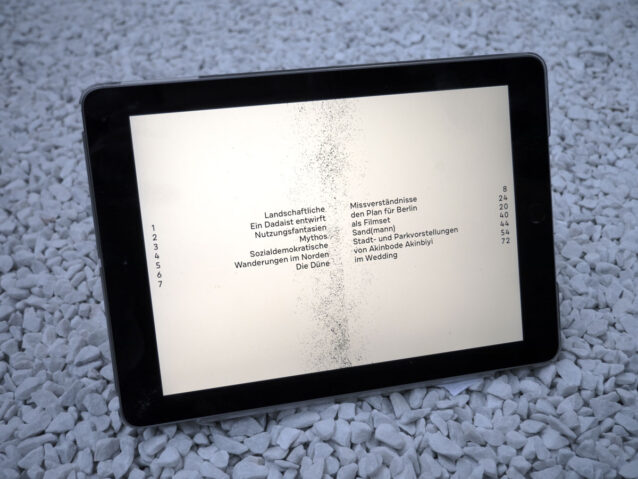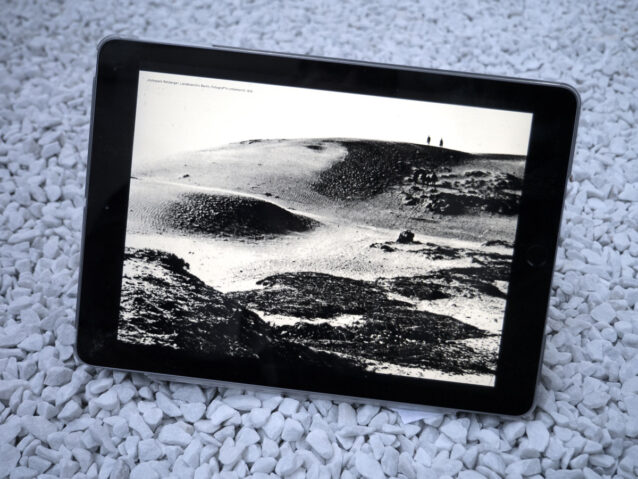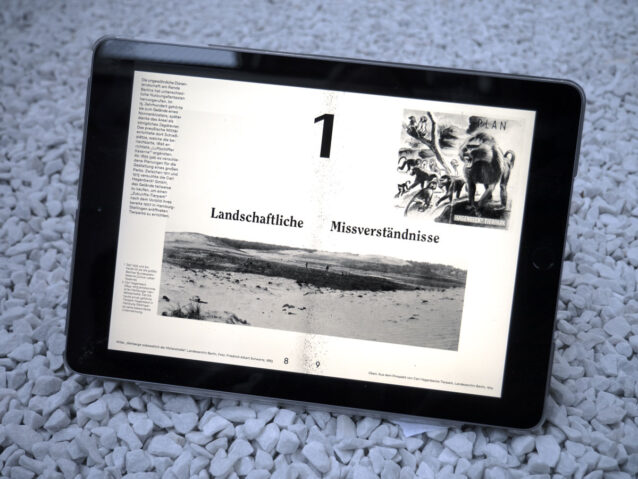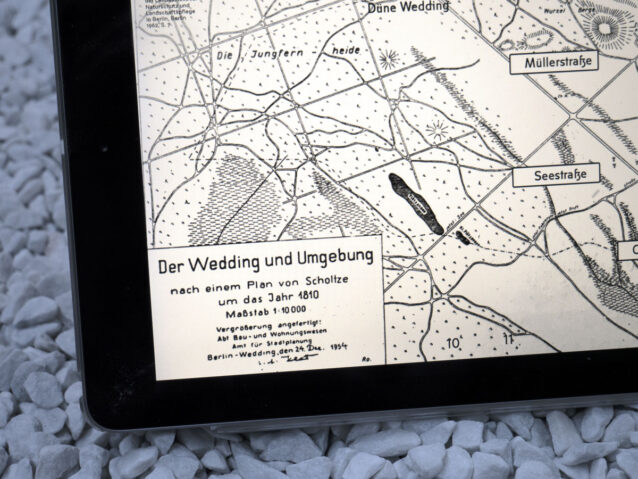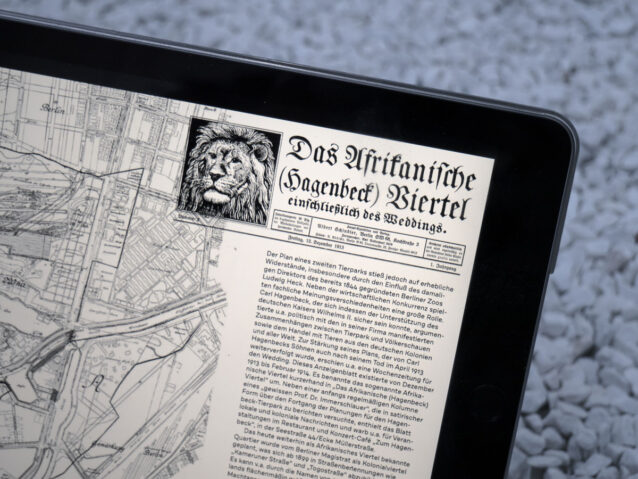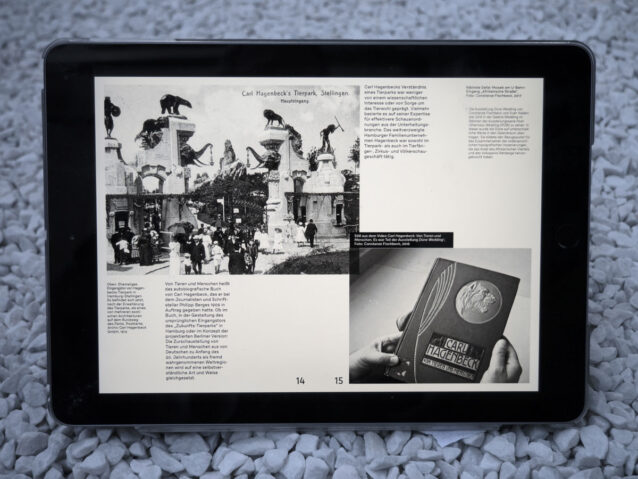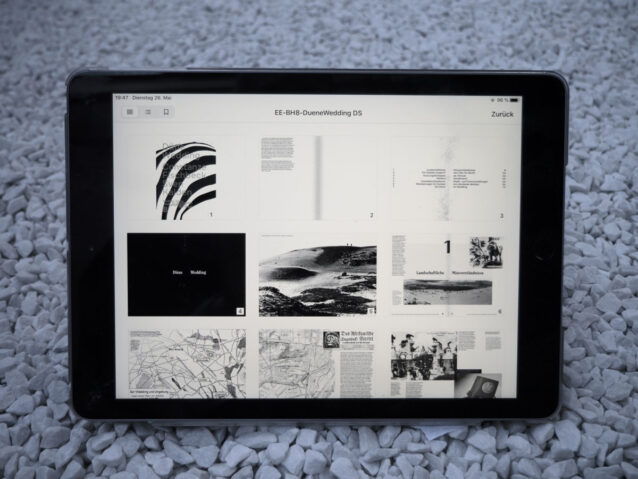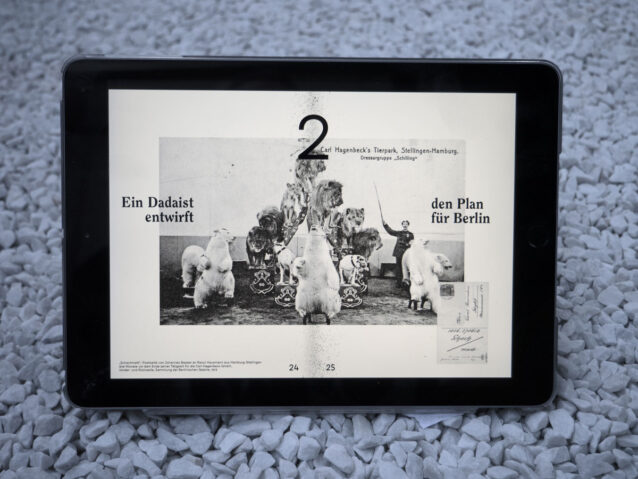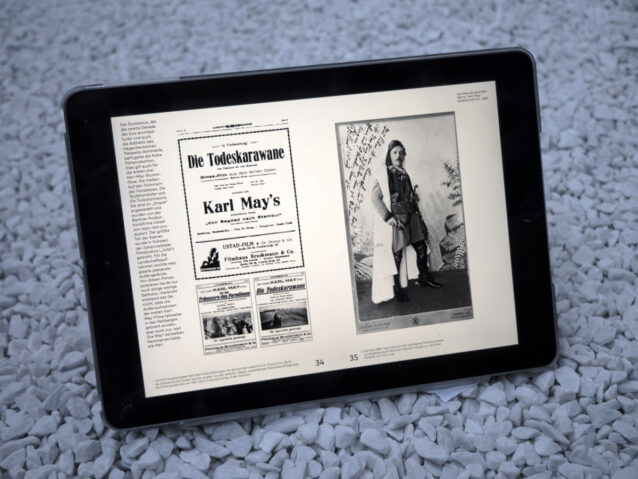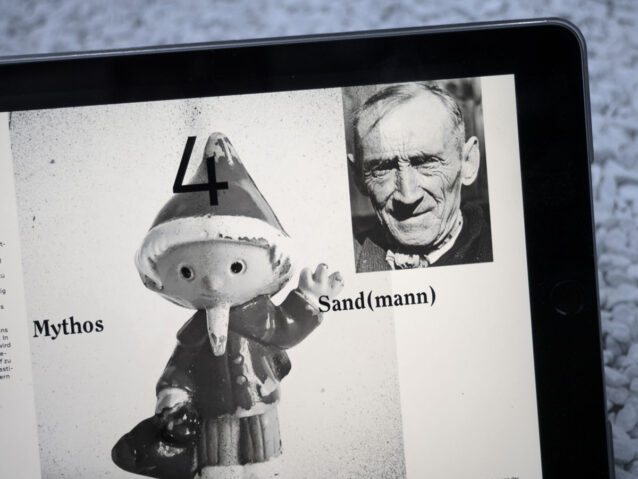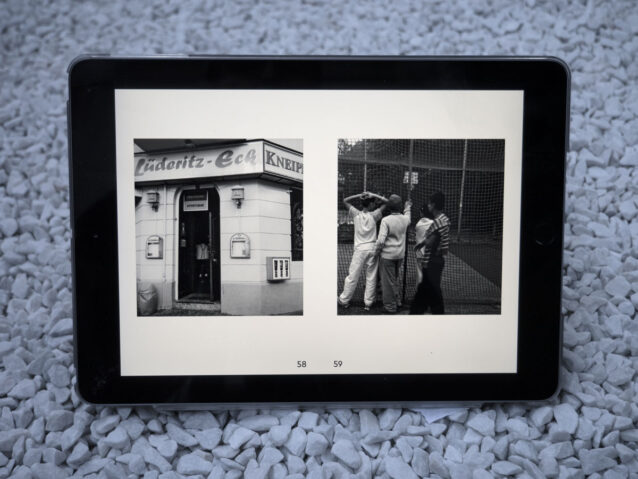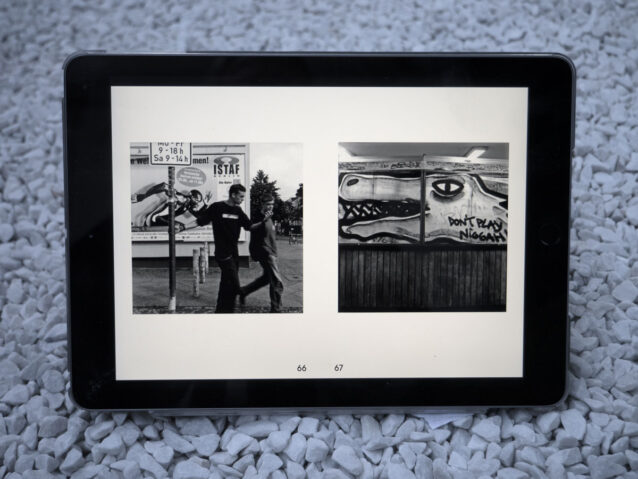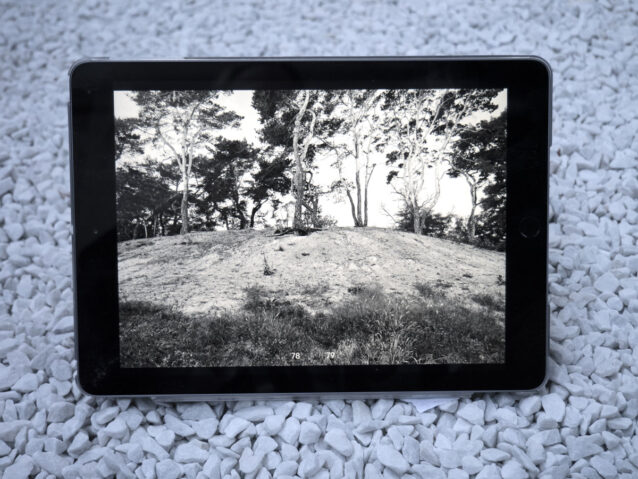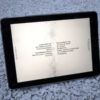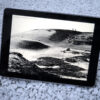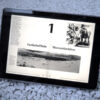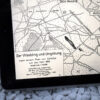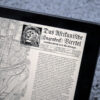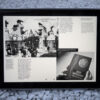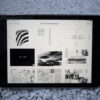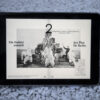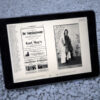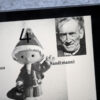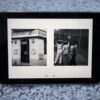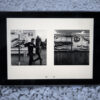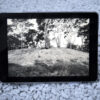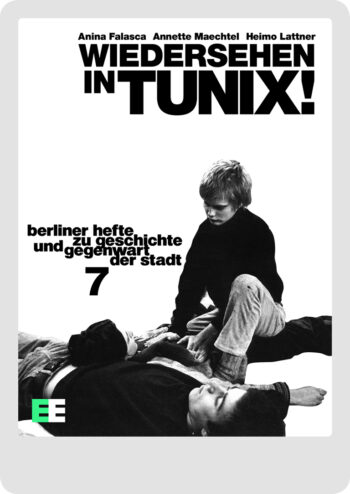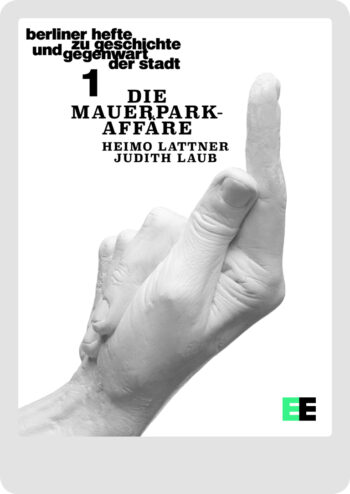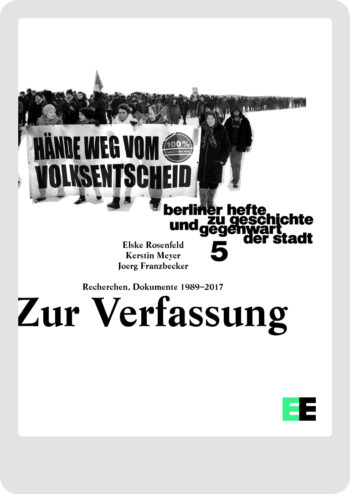Düne Wedding
#8 / Text and image collages describe and document this unusual place
3,99 €
The melting of the last ice-age glaciers, some 12,000 years ago, left behind a sparsely-vegetated moraine landscape in the north of Berlin. The “Düne Wedding” stands as the only remaining relic of these dune formations of the Rehberge hills in what is now Berlin-Mitte. It has been a registered natural monument since 1976. It was “reconstructed” and has regulated opening hours. The Rehberge, as they originally appeared, inspired a wide range of fantasies for their use.
The most famous are Carl Hagenbeck’s plans for a so-called future animal park, meant to exhibit animals and people for both entertainment and educational purposes. Driven by German colonialism, these and other partly exotic attributions contributed to the definition of the neighbouring African Quarter.
Constanze Fischbeck and Sven Kalden collage annotated photographs, images, and documents. Together with an essay by the artist Akinbode Akinbiyi, they tell and expand the history of this place from the end of the 19th century to the present day. The fragile nature of a sand dune reflects the complex process of the urbanization of an unusual landscape.
Constanze Fischbeck
Constanze Fischbeck works as filmmaker, stage designer, curator and lecturer in the context of theatre and art. Her artwork is based on the space and present of specific locations and their societal contexts. Her cinematic works combine the analysis of spaces with performative, documentary and discursive approaches.
Her work was presented international at various festivals, art institutes and theatres. She works as a professor for szenography at the HfG Karlsruhe. She lives in Karlsruhe and Berlin.
constanzefischbeck.com
Sven Kalden
Born 1969, lives in Berlin, works in the field of sculpture and art-installation as well as public art. Studied fine art /sculpture at the KHB-Weißensee. 1998 diploma, 1999 master student, 2010-20 assistant professor in the department for visual arts at the Brandenburg University of Technology. Various teaching assignments and jury work.
Akinbode Akinbiyi
Akinbode Akinbiyi was born in Oxford, England to Nigerian student parents, and grew up in England and Nigeria. After a B. A. English degree from Ibadan University, Nigeria, Akinbiyi returned to Europe, where he took up photography, both as a profession and in personal work on large, sprawling megacities.
The narrative in the labyrinthian weave of city streets, wandering quietly and gently on hectic highways and less frenetic byways, eyes acute to the immediacy of the here and now and simultaneously the faraway oblique horizon. Passageways, Involuntary Narratives, and the Sound of Crowded Spaces, 2016–2017, was a body of work shown during documenta 14 in both Athens and Kassel, and that to date encapsulates this constantly evolving wandering.
A more recent intervention is the retrospective show Six Songs, Swirling Gracefully in the Taut Air at Martin Gropius Bau, Berlin, that opened on 6 February, 2020 and is set to run till 7July, 2020. A show that traverses the wide scope and wanderings going back some four decades.
Eds.: Constanze Fischbeck, Sven Kalden
Text: Akinbode Akinbiyi, Constanze Fischbeck, Sven Kalden, Sascha Thiele
Image series and essay: Akinbode Akinbiyi
Design: Michael Rudolph, Milchhof
German
104 pages (pdf), 80 illustrations
May 2020
ISBN 978-3-947295-54-8 pdf (12 MB)
3,99 Euro
Published as a book by: berlinerhefte.de
ISBN 978-3-946674-07-8
7,00 Euro
You may also like…
-
Wiedersehen in TUNIX! Ein Handbuch zur Berliner Projektekultur
3,99 €#7 / At the Tunix Congress in Berlin in 1978, the undogmatic left developed new forms of work and projects.
-
Zur Verfassung. Recherchen, Dokumente 1989–2017
3,99 €#5 / From the Central Round Table of the GDR to the Tempelhofer Feld
